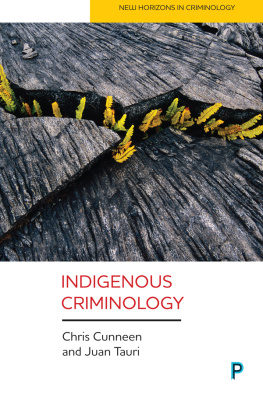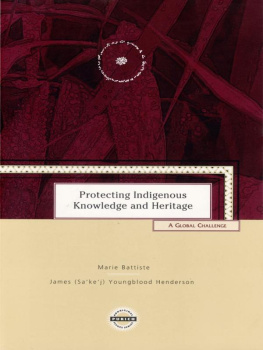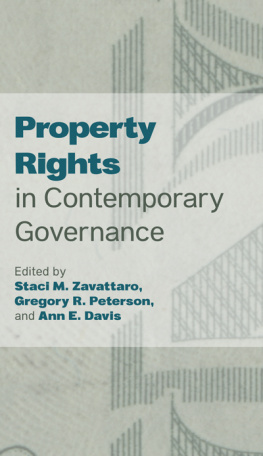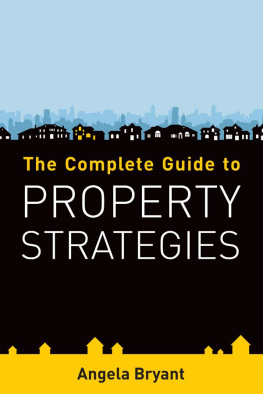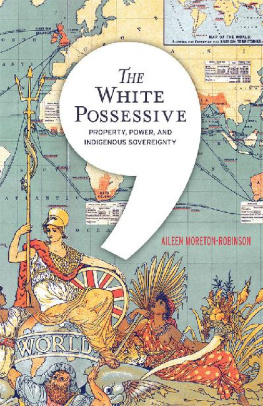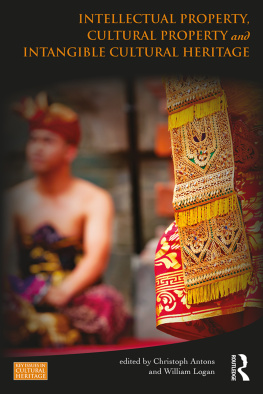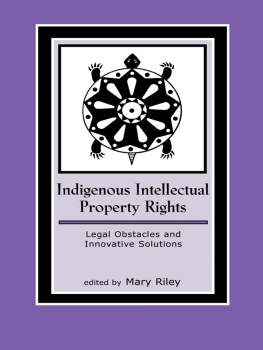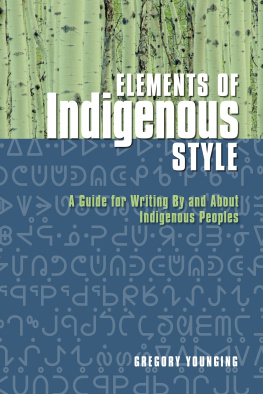Angela Cameron - Creating Indigenous Property: Power, Rights, and Relationships
Here you can read online Angela Cameron - Creating Indigenous Property: Power, Rights, and Relationships full text of the book (entire story) in english for free. Download pdf and epub, get meaning, cover and reviews about this ebook. year: 2020, publisher: University of Toronto Press, genre: Politics. Description of the work, (preface) as well as reviews are available. Best literature library LitArk.com created for fans of good reading and offers a wide selection of genres:
Romance novel
Science fiction
Adventure
Detective
Science
History
Home and family
Prose
Art
Politics
Computer
Non-fiction
Religion
Business
Children
Humor
Choose a favorite category and find really read worthwhile books. Enjoy immersion in the world of imagination, feel the emotions of the characters or learn something new for yourself, make an fascinating discovery.
- Book:Creating Indigenous Property: Power, Rights, and Relationships
- Author:
- Publisher:University of Toronto Press
- Genre:
- Year:2020
- Rating:4 / 5
- Favourites:Add to favourites
- Your mark:
- 80
- 1
- 2
- 3
- 4
- 5
Creating Indigenous Property: Power, Rights, and Relationships: summary, description and annotation
We offer to read an annotation, description, summary or preface (depends on what the author of the book "Creating Indigenous Property: Power, Rights, and Relationships" wrote himself). If you haven't found the necessary information about the book — write in the comments, we will try to find it.
Angela Cameron: author's other books
Who wrote Creating Indigenous Property: Power, Rights, and Relationships? Find out the surname, the name of the author of the book and a list of all author's works by series.
Creating Indigenous Property: Power, Rights, and Relationships — read online for free the complete book (whole text) full work
Below is the text of the book, divided by pages. System saving the place of the last page read, allows you to conveniently read the book "Creating Indigenous Property: Power, Rights, and Relationships" online for free, without having to search again every time where you left off. Put a bookmark, and you can go to the page where you finished reading at any time.
Font size:
Interval:
Bookmark:

While colonial imposition of the Canadian legal order has undermined Indigenous law, creating gaps and sometimes distortions, Indigenous peoples have taken up the challenge of rebuilding their laws, governance, and economies. Indigenous conceptions of land and property are central to this project.
Creating Indigenous Property identifies how contemporary Indigenous conceptions of property are rooted in and informed by their societally specific norms, meanings, and ethics. Through detailed analysis, the authors illustrate that unexamined and unresolved contradictions between the historic and the present have created powerful competing versions of Indigenous law, legal authorities, and practices that reverberate through Indigenous communities, including relationships to land and non-human life forms, responsibilities to one another, environmental decisions, and wealth distribution. Creating Indigenous Property identifies the ways that Indigenous discourses, processes, and institutions can empower the use of Indigenous law and explores the conditions under which Canadian and Indigenous legal orders can productively co-exist.
ANGELA CAMERON is the Shirley Greenberg Chair and associate professor in the Faculty of Law at the University of Ottawa.
SARI GRABEN is assistant professor in the Department of Law and Business in the Ted Rogers School of Management, Ryerson University.
VAL NAPOLEON is the Law Foundation Professor of Aboriginal Justice and Governance at the University of Victoria.
Creating Indigenous Property
Power, Rights, and Relationships
EDITED BY ANGELA CAMERON, SARI GRABEN, AND VAL NAPOLEON
UNIVERSITY OF TORONTO PRESS
Toronto Buffalo London
University of Toronto Press 2020
Toronto Buffalo London
utorontopress.com
Printed in Canada
ISBN 978-1-4875-0545-5 (cloth) ISBN 978-1-4875-3213-0 (EPUB)
ISBN 978-1-4875-2382-4 (paper)ISBN 978-1-4875-3211-6 (PDF)
Library and Archives Canada Cataloguing in Publication
Title: Creating Indigenous property : power, rights, and relationships / edited by Angela Cameron, Sari Graben, and Val Napoleon.
Names: Cameron, Angela (Angela Jane), editor. | Graben, Sari, 1975 editor. | Napoleon, Val, 1956 editor.
Description: Includes bibliographical references.
Identifiers: Canadiana (print) 20200195123 | Canadiana (ebook) 20200195190 | ISBN 9781487505455 (hardcover) | ISBN 9781487523824 (softcover) | ISBN 9781487532116 (PDF) | ISBN 9781487532130 (EPUB)
Subjects: LCSH: Indigenous peoples Land tenure Canada. | LCSH: Land tenure Law and legislation Canada. | LCSH: Land titles Canada. | LCSH: Land use Canada. | LCSH: Real property Canada. | LCSH: Indigenous peoples Legal status, laws, etc. Canada. | CSH: Native peoples Canada Claims. | CSH: Aboriginal title Canada.
Classification: LCC E98.L3 C74 2020 | DDC 333.2dc23
This book has been published with the help of a grant from the Federation for the Humanities and Social Sciences, through the Awards to Scholarly Publications Program, using funds provided by the Social Sciences and Humanities Research Council of Canada.
University of Toronto Press acknowledges the financial assistance to its publishing program of the Canada Council for the Arts and the Ontario Arts Council, an agency of the Government of Ontario.

Our world feels increasingly divided. This could be the result of social media, Russian intervention, or perhaps the backlash of those accustomed to the benefits of unearned privilege who are now threatened by substantive equality. Whatever the cause, public discourse about Indigenous peoples and our rights is not immune to the rise of the politics of division. In this context, we might wonder how to build community among people who hold differing views, aspirations, and norms. How do we facilitate productive dialogue across increasingly disparate perspectives?
My experience is that these discussions are often mired in debates about outcomes. Which laws and policies will produce better outcomes? The implication is that outcomes can serve as the measure by which to judge the merits of various laws, and therefore the merits of the norms that underlie those laws. I have witnessed this approach while teaching Indigenous and Aboriginal legal issues within mandatory law school courses. Some students want to engage in a critical assessment of Indigenous laws by comparing the outcomes produced by Indigenous laws to those produced by Western laws. They argue that Western laws and the values that inform them have generated a level of socio-economic security and a standard of living that far surpass anything achieved by Indigenous laws and cultures.
It can be difficult to see the flaw in this approach, especially when the outcomes are articulated at a sufficiently general level of abstraction. After all, who doesnt want better health, education, or socio-economic outcomes for Indigenous peoples? Even the common rebuttal that the achievements of Western laws and culture are questionable, given that Indigenous communities have been largely excluded from the wealth generated by these laws still engages the debate at the level of outcomes. Of course, debates about outcomes can be productive, such as when a discussant offers previously unavailable empirical data to demonstrate that a desired outcome is more likely to follow from a particular law. But a basic precondition for the success of such debates is a shared set of norms held by the discussants. If the discussants disagree about the most fundamental norms underlying the premises of each sides argument, no argument about the benefits of the expected outcomes supported by empirical evidence or otherwise will be persuasive.
When discussants focus on outcomes without first establishing a shared set of norms, the debate tends to operate within a Western, liberal framework, and the norms underpinning that framework go unquestioned and can even become characterized as pragmatism or common sense. But if the laws of an Indigenous nation are based on fundamentally different norms, then those Indigenous laws will inevitably fail to cohere with or from a Western perspective, will fall short of the outcomes valued by liberalism.
Scholarship advocating for the privatization of Indigenous lands sometimes falls into this trap by pointing towards what are assumed to be desirable outcomes, such as increased economic development, wealth, access to capital, equity, investor confidence, and stability. The norms that underpin these outcomes are the norms of liberalism and capitalism.
Arguments that are premised on these liberal assumptions to the exclusion of Indigenous laws and the norms that underpin those pose a question: Why these particular outcomes? From within a liberal perspective, the kinds of outcomes mentioned above increased economic development, wealth, and access to capital seem obvious and even unquestionable. But from the perspective of at least some Indigenous nations, these outcomes are at best unsupported and at worst undesirable. Of course, supporting the well-being of Indigenous people is laudable, but for many Indigenous peoples, this cannot be done at the expense of other fundamental values and norms.
To begin to facilitate understanding between those who hold competing perspectives, the analysis needs to be directed not towards outcomes but in the other direction, towards the norms that underpin our laws. This book undertakes this vital work. It makes explicit what is often left implicit by identifying the ways in which privatization arguments rest upon characterizations of land as a commodity and the neoliberal discourse of market efficiency. It counters these assumptions by offering robust discussions of Indigenous laws, including their underlying assumptions and norms, and it demonstrates the implications for the privatization debate. At the same time, the analyses presented within this collection eschew simplistic, monolithic characterizations of Indigenous law by recognizing both the diversity across various Indigenous legal orders and the sometimes conflicting norms that pertain to land held within Indigenous communities. In so doing, this book acknowledges that some Indigenous legal orders can accommodate some forms of privatization. The result is a sophisticated and nuanced investigation of the privatization of Indigenous lands.
Next pageFont size:
Interval:
Bookmark:
Similar books «Creating Indigenous Property: Power, Rights, and Relationships»
Look at similar books to Creating Indigenous Property: Power, Rights, and Relationships. We have selected literature similar in name and meaning in the hope of providing readers with more options to find new, interesting, not yet read works.
Discussion, reviews of the book Creating Indigenous Property: Power, Rights, and Relationships and just readers' own opinions. Leave your comments, write what you think about the work, its meaning or the main characters. Specify what exactly you liked and what you didn't like, and why you think so.


